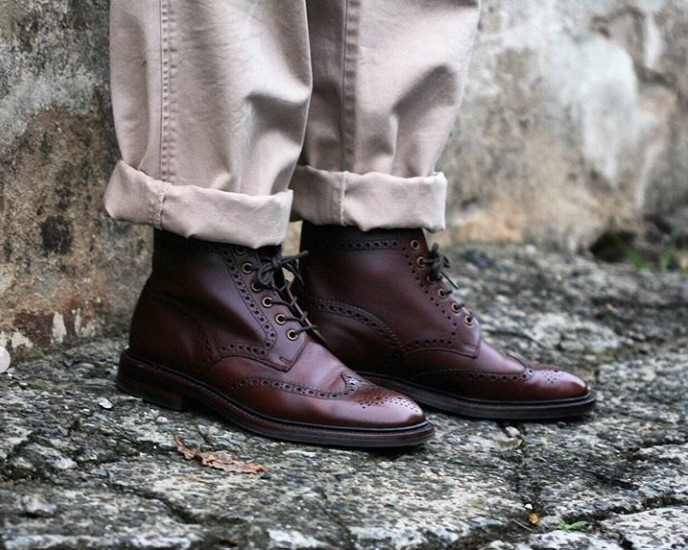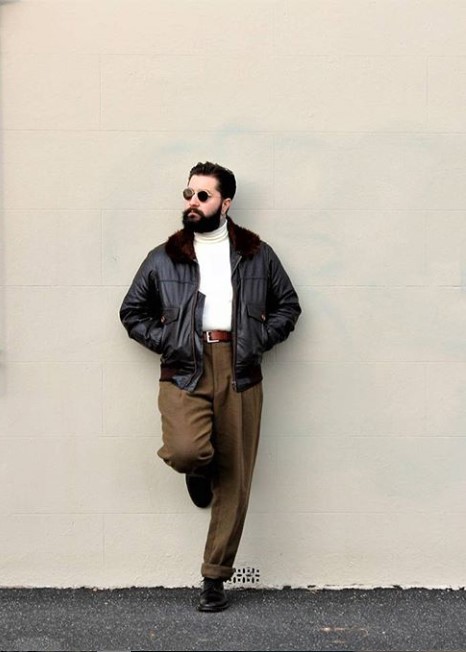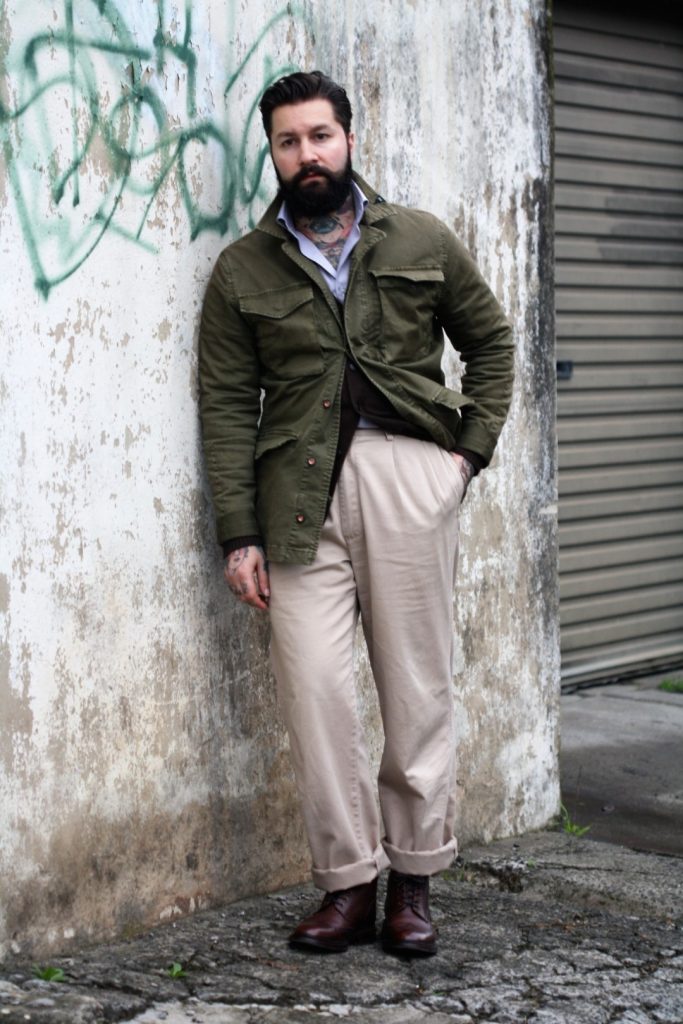
Now that we have gone over the construction and care basics. we can move onto the footwear.
Currently, in Melbourne, Australia, it is autumn/fall, so we are getting into “boot” weather. Boots have a few more details than shoe styles, so I thought I’d go over the Herring offering, showcasing the features and benefits. Thus, helping you buy better. In saying this, I will note not all the styles I own may be available to purchase, but below I will offer alternatives.
The first boot that I bought from Herring was the Burgh (sadly now out of stock). This is a very classic British style brogue boot, some may say this is an essential item for the colder months. The brogue boot can be traced back to Ireland and Scotland in the early 19th century. Unlike the modern-day brogue, instead of perforated holes and decorative patterns, the story was told that farmers drilled holes into their boots and shoes to drain water out during the wet season. The word “brogue” is Scottish for a tool that bores holes. This country-style boot became a staple across the British and European countryside, being made to handle the harshest cold and wet conditions.
Like most country-style boots, these run a little bigger than a shoe. This is to leave room for thicker socks, as a posse to thin dress style socks. Size-wise, I went for more fitted and dropped half a size from my regular, something I would advise for most boot styles if you wish to wear them more fitted.

I love wearing these boots in a more utilitarian style: jeans, fatigue pants, moleskin or a heavy cotton chino. The storm welting gives width to the boots, so sticking to a slightly tapered or regular/straight cut pant/trousers works best visually. If you go too skinny, then your foot proportion will be exaggerated. In other words, you’ll have “clown” shoes.

These are definitely capable of being matched in a suit, due to the soft chisel style toe, they are more elegant than bulky. I would suggest wearing brogue boots with winter fabrics such as flannel, tweed and corduroy. Blues, greys and earthy tones will give you the most versatility, as brown is a warm colour.
Boots are like a fine wine and only get better with age. They will soften and gain lots of character, so don’t be too precious with them. Quality boots will last and take a beating.
My top replacement for the Burgh would be the Langdale II and here is a list of other offerings from Herring that will also fit the bill perfectly well.

Until then, buy smart, buy well.
Regards, Jared Acquaro